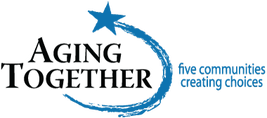The 10 signs of Alzheimer's DiseaseThe Alzheimer's Association has established 10 warning signs for Alzheimer's Disease with the idea that early detection can make it more manageable for the person and their caregivers. Click on the video at right to listen, or click the button below to view a graphic.
|
|
|
UVA HEALTH SYSTEM
The Neurosciences and Behavioral Health Center in Charlottesville has a clinic devoted to Alzheimer's and Memory Disorders. 434-924-0000 / Click on logo at right for their information. |
|
Sing Along with Susie Q
https://www.youtube.com/user/beemusicstudios/videos Susan McAllister-Bee, better known as Susie Q, is a music teacher and musician from St. Thomas, Canada. This channel is dedicated to the elderly and their caregivers. Enjoy hours and hours of singing along to favorite songs - lyrics subtitles included. Also good for group activity. |
|
Gerontologist Anne Basting helps families reconnect with loved ones who have dementia. Listen to her TED Talk about asking "beautiful questions", or those that don't have right or wrong answers. She inspires!
|
|
|
Men and women living with dementia speak candidly about their experiences as they relate to key messages of the Dementia Friends program: 1) Dementia is not a normal part of aging. 2) Dementia is caused by diseases of the brain. 3) Dementia is not just about having memory problems. 4) It is possible to have a good quality of life with dementia. 5)There’s more to the person than the dementia. From Dementia Friends Minnesota
|
|
|
From June 25, 2021: Hear Aging Together's Executive Director speak on The Power of Personalized Activities for Persons Living with Dementia as part of the "Mason Music and Memories Initiative" speaker series. Ellen speaks about what the "person centered approach" means in terms of caring for someone living with dementia, and offers tools to formulate activities around person centered care. A great listen for any caregivers, family or professional, who are looking for better ways to successfully communicate with, and help those living with dementia. (Once you hit Play, there is a 5-second stall before video starts.)
|
|
Caregiving for a loved one living with dementia can be stressful and often it's hard to know how to help. Visit our Caregiver Support page for resources and other websites that offer many levels of information. Updated regularly!
|
|
Find resources to help with transitions into long-term care, including Memory Care
housing options. |
|
If you're concerned about the treatment of a loved one who is under the care of an individual or facility, there are resources to help.
|
How Can I help?
|
|
Aging Together serves the counties of Culpeper, Fauquier, Madison, Orange & Rappahannock
in the Commonwealth of Virginia. |
Aging TogetherWe're on Facebook!
|
DonateYour contribution to Aging Together
is Tax Deductible. Thank you! |
